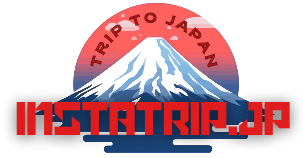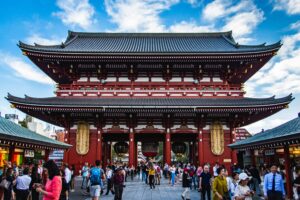The Japanese Secret to a Fulfilling Life: Uncovering Ikigai (生き甲斐)
Translate Post:

Ikigai (生き甲斐), a deeply rooted Japanese concept in the country’s culture and philosophy, has gained popularity worldwide as an approach to finding purpose and meaning in life. The term “Ikigai” is derived from two Japanese words: “iki,” meaning “life,” and “gai,” which translates to “value” or “benefit.” Essentially, Ikigai refers to the sense of purpose and satisfaction found in living a meaningful and fulfilling life.
While the term Ikigai has become popular in recent years, its origins can be traced back to the island of Okinawa, known for being one of the world’s “blue zones,” areas where people live notably longer and healthier lives than elsewhere. The inhabitants of Okinawa largely attribute their longevity and well-being to the practice of Ikigai, which provides them with a sense of purpose and direction in life.
In this article, we will delve deep into Ikigai, unraveling its mysteries and revealing how it can transform our lives for the better. You’ll discover how you can apply the principles of Ikigai to find your own purpose and meaning, and how living according to your Ikigai can lead to a more fulfilling and satisfying life.
What is Ikigai?
Origin and Meaning
The term “Ikigai” is composed of two Japanese words: “iki,” meaning “life,” and “gai,” which translates to “value” or “benefit.” In its broadest sense, Ikigai refers to the sense of purpose and satisfaction found in living a meaningful and fulfilling life.
The Ikigai Grid Concept
A common way to visualize Ikigai is through the “Ikigai grid,” which consists of four interconnected elements: what you love, what you are good at, what the world needs, and what you can be paid for. When these four elements align, it is said that a person has discovered their Ikigai.
Discovering Your Ikigai
Explore Your Passions
The first step in discovering your Ikigai is to reflect on what truly excites you in life. Think about the activities that make you feel most alive and engaged, and consider how you can incorporate them more fully into your daily life.
Identify Your Strengths
In addition to your passions, it’s also important to consider your unique skills and strengths. Reflect on the activities where you naturally excel and consider how you can use those skills to make a meaningful contribution to the world.
Consider the Needs of the World
The third element of the Ikigai grid is identifying what the world needs. Reflect on the problems and challenges that society faces at large, and consider how you can use your passions and skills to address those needs in a meaningful way.
Find Your Vocation
Finally, Ikigai also involves finding a vocation that allows you to make a living doing what you love. This doesn’t necessarily mean finding the perfect job right away, but rather being open to opportunities that allow you to align your passions and skills with a satisfying and rewarding career.
Benefits of Ikigai
Sense of Purpose
One of the key benefits of Ikigai is providing a sense of purpose and direction in life. By discovering what truly excites you and finding ways to make a meaningful contribution to the world, you can experience a greater sense of satisfaction and personal fulfillment.
Mental and Emotional Well-being
Living according to your Ikigai can also have significant benefits for your mental and emotional well-being. By being more in tune with your passions and values, you are more likely to experience lower levels of stress, anxiety, and depression, and a greater sense of overall happiness and fulfillment.
Real-Life Examples of Ikigai
An Inspiring Artist
Imagine an artist who discovers their Ikigai by combining their love for painting with their desire to inspire others. Through their art, they can convey powerful messages and evoke emotions in others, finding deep purpose in the process.
A Social Entrepreneur
Another example could be a social entrepreneur who discovers their Ikigai by founding a non-profit organization that addresses a significant need in their community. By using their business skills to create a positive impact in the world, they find deep satisfaction in their daily work.
Ultimately, Ikigai invites us to reflect on what truly matters in life and to seek a harmonious balance between our passions, skills, what the world needs, and what provides us sustenance. By embarking on this journey of self-discovery, we can find greater satisfaction, meaning, and joy in our lives.
Frequently Asked Questions about Ikigai
1. Is Ikigai the same as passion?
While passion is an important component of Ikigai, it encompasses more than just what excites us. Ikigai involves finding the intersection of what we love, what we’re good at, what the world needs, and what we can be paid for.
2. How can I discover my Ikigai if I’m not sure what truly excites me?
Exploring different activities, seeking new experiences, and reflecting on past moments of joy and fulfillment can help uncover your passions and interests. It’s also helpful to pay attention to activities that make you lose track of time or that you find deeply engaging.
3. Is Ikigai only for people who are lucky enough to find the perfect job?
No, Ikigai is not solely about finding the perfect job. It’s about finding purpose and meaning in all aspects of life, including relationships, hobbies, and personal growth. While a fulfilling career is one aspect of Ikigai, it’s not the only path to a meaningful life.
4. What can I do if I feel like I’ve lost my Ikigai?
If you feel like you’ve lost your sense of purpose, it’s important to take time for self-reflection and reconnect with your passions and values. Consider seeking support from friends, family, or a therapist who can help guide you through this process of rediscovery.
5. Is there any scientific research supporting the benefits of Ikigai for health and well-being?
While there is limited scientific research specifically on Ikigai, studies have shown that having a sense of purpose and meaning in life is associated with numerous health benefits, including lower rates of chronic disease, better mental health, and increased longevity.









